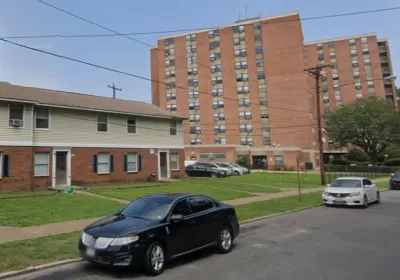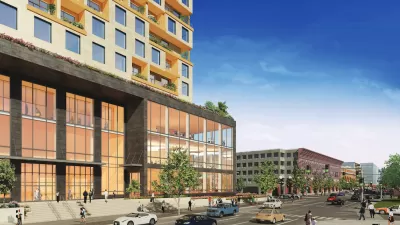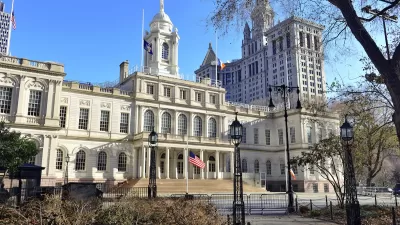The city hopes to see a mixed-use,mixed-income project replace the aging, “physically obsolete” Gilpin Court complex.

The City of Richmond hopes to attract redevelopment to the state’s largest public housing project, a 38-acre complex of 98 buildings that have fallen into disrepair, with 98 percent of units deemed “physically obsolete.” The Richmond Redevelopment and Housing Authority (RRHA) has re-issued a request for qualifications (RFQ) to redevelop Gilpin Court, whose maintenance backlog “is millions more than the City of Richmond could ever reconcile.”
Wyatt Gordon describes the effort in Next City. “For the neighborhood that comes after Gilpin, [RRHA CEO Steven Nesmith] envisions women- and minority-owned businesses, a resident reinvestment fund, grocery stores, a community health clinic, a job training center, and a mixture of multi-family rental units and single-family homeownership options for current public housing residents.”
According to Paul Williams, executive director of the Center for Public Enterprise, turning to private developers is the only viable option for many housing authorities. “Until Congress appropriates the funds that public housing requires and needs, conversions are the only viable tool in housing authority directors’ pocket to give residents the quality housing they deserve.”
Gordon writes that “If Gilpin’s residents are as well taken care of as those who moved out of the now demolished Creighton Court and into the mixed-income Armstrong Renaissance community next door, then LaFonda Page — a former public housing resident and current organizer for the Legal Aid Justice Center — believes the redevelopment will be welcomed by residents with open arms.”
FULL STORY: Can Redevelopment Save Richmond’s Dilapidated Public Housing?

Maui's Vacation Rental Debate Turns Ugly
Verbal attacks, misinformation campaigns and fistfights plague a high-stakes debate to convert thousands of vacation rentals into long-term housing.

Planetizen Federal Action Tracker
A weekly monitor of how Trump’s orders and actions are impacting planners and planning in America.

In Urban Planning, AI Prompting Could be the New Design Thinking
Creativity has long been key to great urban design. What if we see AI as our new creative partner?

King County Supportive Housing Program Offers Hope for Unhoused Residents
The county is taking a ‘Housing First’ approach that prioritizes getting people into housing, then offering wraparound supportive services.

Researchers Use AI to Get Clearer Picture of US Housing
Analysts are using artificial intelligence to supercharge their research by allowing them to comb through data faster. Though these AI tools can be error prone, they save time and housing researchers are optimistic about the future.

Making Shared Micromobility More Inclusive
Cities and shared mobility system operators can do more to include people with disabilities in planning and operations, per a new report.
Urban Design for Planners 1: Software Tools
This six-course series explores essential urban design concepts using open source software and equips planners with the tools they need to participate fully in the urban design process.
Planning for Universal Design
Learn the tools for implementing Universal Design in planning regulations.
planning NEXT
Appalachian Highlands Housing Partners
Mpact (founded as Rail~Volution)
City of Camden Redevelopment Agency
City of Astoria
City of Portland
City of Laramie





























